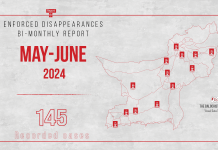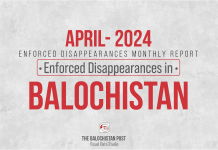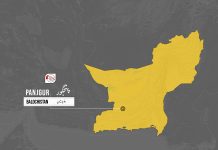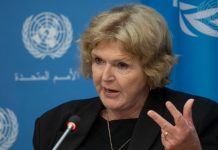The Italian Senate has placed a demand before the European Union (EU) and its Parliament to immediately suspend and or withdraw business opportunities offered to Pakistan under the European Union’s Generalised System of Preferences (GSP) because of its support to terror outfits operating from its soil and its poor human rights record.
In a resolution passed recently, a critical Italian Senate or the Senato della Repubblica, which is one of the legislative houses of the bicameral Italian Parliament, told Ministers of Foreign Affairs and International Cooperation and Economic Development in Europe, that Pakistan has “always been the cradle of international terrorism” and has ” not been able to comply with UN conventions based on human rights, workers’ rights, respect for the environment and protection of women”, and therefore, should not be allowed to remain one of the main beneficiaries of business opportunities offered under the EU’s GSP.
“Pakistan, thanks to this regime, benefits from advantageous tariff preferences and its products enter Italy duty free. With a provision signed by the Minister of the Interior on 20 October, a Pakistani national was expelled from Italy for reasons of national security. It is not the first Pakistani expelled from Italy, since the country has always been the cradle of international terrorism,” the Italian Senate said in its resolution issued last month.
The resolution further went on to say that “despite this danger, trade between our country (Italy) and Pakistan has increased, although the development of Pakistani textiles strongly damages Italian industries.”
The Senate appealed to the ministers to start the procedures for suspension of the GSP system against Pakistan until “that country does not meet its obligations on human rights, implements the 27 fundamental conventions and ceases the persecution of Christians.”
Pakistan is one of the biggest beneficiaries of the GSP+ scheme, coming under the special monitoring mechanism put in place by the EU.
As the European Commission acknowledges in its 2016 report, even if Pakistan has ratified the relevant international instruments, the situation with regard to many human and labour rights remains problematic. Enforcement of human rights conventions in the country remains deficient because of social attitudes, the weakness of state institutions, and the legal uncertainties emanating from the devolution of power.
To give two examples of major problems – the suspension of the death penalty moratorium and the resumption of executions in Pakistan has been strongly criticized by civil society. While abolition of the death penalty is not among GSP+ conditions, Pakistan maintains the death penalty for a large number of crimes (including blasphemy), some of which do not fall into the category of ‘most serious crimes’, contravening the International Covenant on Civil and Political Rights (ICCPR), which is one of the 27 GSP+ conventions with which the country has to comply.
With regard to labour rights, Pakistan ranks sixth in the world on the 2016 Modern Slavery Index, with an estimated 2.1 million people (or 1.13 percent of its population) living in modern slavery. This is in clear violation of both UN and ILO conventions.
Protection of human rights is one of the European Union’s overarching objectives in its external action, in line with the Treaty on European Union. One of the EU’s main tools to promote human rights in third world countries is the generalised system of preferences (GSP), granting certain developing countries preferential trade access to the EU market.
Covering 90 third world countries, the scheme includes explicit human rights conditionality, providing that preferences can be withdrawn in case of massive and systematic violations of core human rights or labour rights norms.
A special incentive arrangement grants further tariff concessions to countries that ratify and implement a series of international conventions. Based on systematic monitoring by the European Commission, this is the most comprehensive and detailed human rights mechanism established in the framework of the EU common commercial policy.
In practice, however, the EU has introduced and applied a strategy of incentivising gradual progress through dialogue and monitoring, rather than withdrawing preferences. The suspension of preferences under the GSP is rarely applied and, when it is, it does not have an immediate and clear impact.
The EU’s unilateral trade measures to protect human rights are not limited to the GSP. The EU has taken steps to prohibit or limit trade in items that could cause human rights violations, such as torture and execution items, or dual use goods.
New legislation is being considered on conflict minerals, and the European Parliament has asked for a proposal for legislation to ban the import of goods produced using child labour.
The GSP is an EU trade regime established in line with the World Trade Organisation (WTO) Enabling Clause and granting unilateral trade preferences to developing countries classified as low income or lower middle income economies, or, as least developed countries.
Standard GSP grants customs duty reductions for around 66 percent of all EU tariff lines to developing countries classified by the World Bank (WB) as low income or lower-middle income economies and which are not among the LDCs. In order to be granted the GSP+ status, countries have to ratify 27 international human rights, labour rights, sustainable development and good governance conventions, and comply with them, including with their monitoring requirements.
Established in 1971, the GSP is the oldest EU trade regime contributing to the promotion of human rights.
This system was overhauled in 2005 after the 2003 WTO Appellate Body found the special arrangement rewarding certain countries for their efforts to fight trafficking in drugs to be discriminatory, and thus, contrary to WTO rules. A new regulation (EU) No 978/2012 was adopted in 2012 with effect from January 1, 2014. A three-layered structure comprising: Everything but Arms (EBA); Standard GSP; and GSP+ was introduced in 2005, but the 2012 Regulation modified the access conditions to Standard GSP and GSP+.
The total volume of preferential imports to the EU under the three GSP components amounted to almost €51 billion in 2014, representing only three percent of EU imports from the rest of the world (totalling €1692 billion the same year).
Around 90 percent of the total volume of preferential exports to the EU under GSP originates in less than 10 countries, located mainly in South and South-East Asia. In each of the GSP layers, one single country is the source of more than 50 percent of all EU preferential imports.
If the European Commission establishes violations justifying the suspension, it issues a note about the initiation of a withdrawal procedure. In a first stage, it monitors the situation for six months in the country concerned. During this time, the third country can submit its observations. Within a further six months, if no remedial measures have been taken by the third country, the commission can withdraw the trade preferences by delegated act. Preferences withdrawal is thus a gradual process that aims to provide enough time to the country under investigation to answer to the concerns related to human rights and labour rights violations and possibly to remedy them.






























